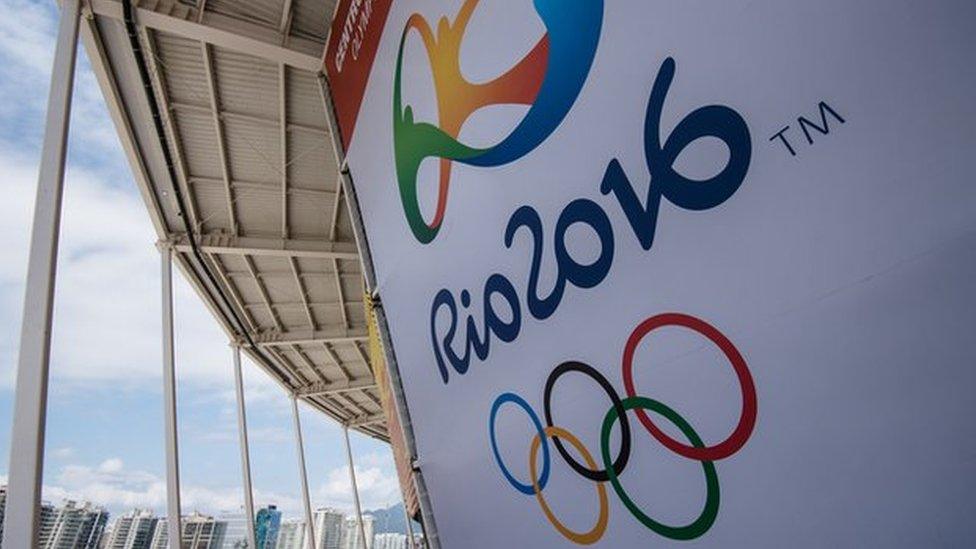Rio 2016: seven years in the planning
- Published
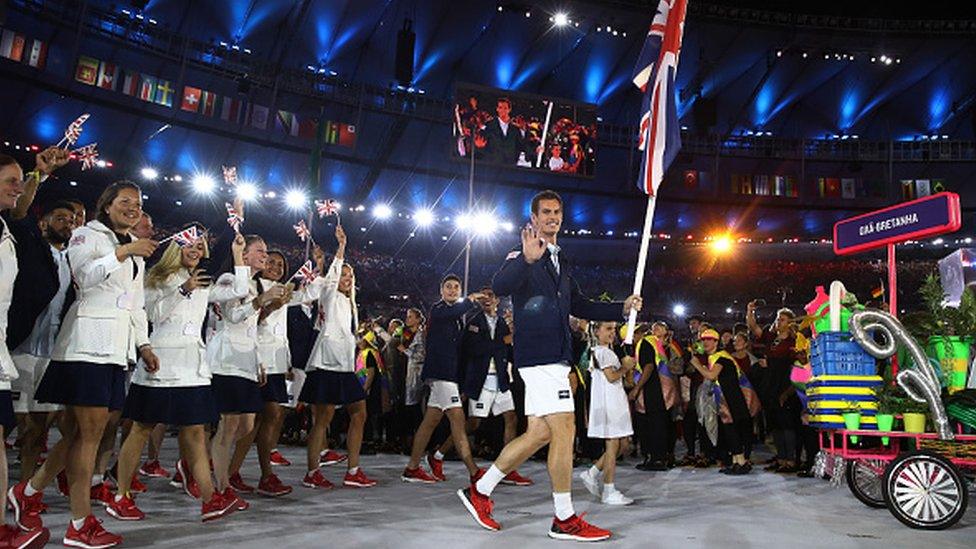
Andy Murray and Team GB at the opening ceremony
Over the last half century or so, we have watched as this huge nation has emerged from a place some used to disparagingly refer to as "Third World" to become a global economic superpower.
So, when in 2009, the country of Brazil and the city of Rio de Janeiro were awarded the right to host the Olympic Games it seemed an inspired, almost inevitable choice.
But Brazil is a very different country to the confident, progressive nation it was just seven short years ago.
I've lived, studied and visited here on and off for many years but since 2013 Rio has been my home and reporting on this country's preparation to host global mega events, including the World Cup and the Olympic Games, has been my job.
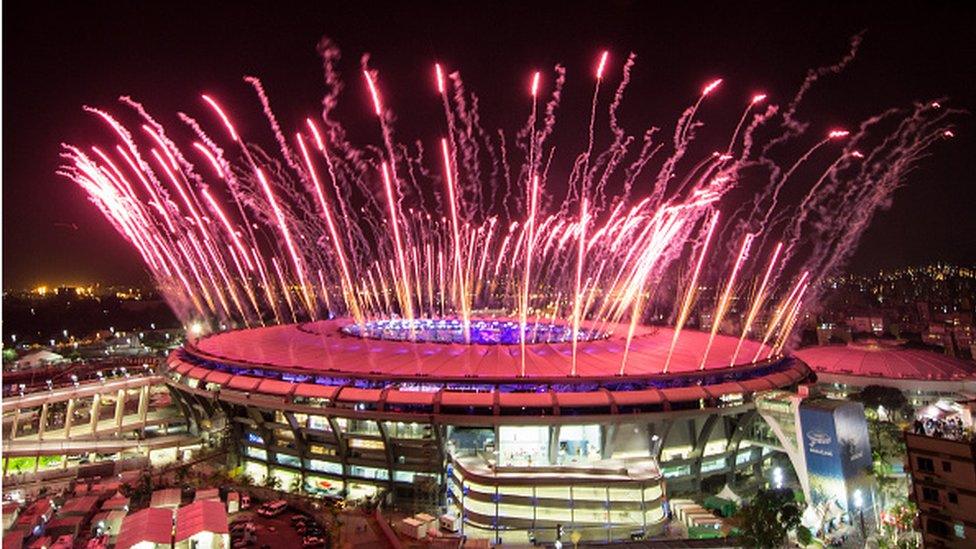
And, as we head into the first full week of Olympic competition, it is too early to say if these Games - the first to be held in South America - will be a success or if, in hindsight, it was a mistake for Rio to have even bid for the Games in the first place.
Friday night's opening ceremony in the Maracana Stadium certainly hit the right note. It was understated, costing about one tenth of Danny Boyle's extravaganza at London 2012, but it was unmistakably Brazilian.
There was a heavy emphasis on this country's great musical traditions and, making great use of sound and light, it set the right tone for an Olympics which is taking place against the backdrop of a deep economic and political crisis.
Even in the last three years I've seen huge changes in this city. Not only the new sporting venues demanded by Olympic chiefs, but improved transport infrastructure and museums in previously neglected parts of the city.
The city's charismatic and sometimes outspoken mayor, Eduardo Paes, has told me more than once that many of these improvements would simply not have happened were it not for the impetus of the Games.
He is probably right but the problem is that Rio, and Brazil, have arguably much more pressing long term concerns these days than organising a global sporting jamboree.
One small thing that struck me, as I walked away from the Maracana after Friday's show, was a stinking filthy open sewer running right beside the stadium. Like most other polluted streams and rivers it will empty straight into the Bay around which this city is built.
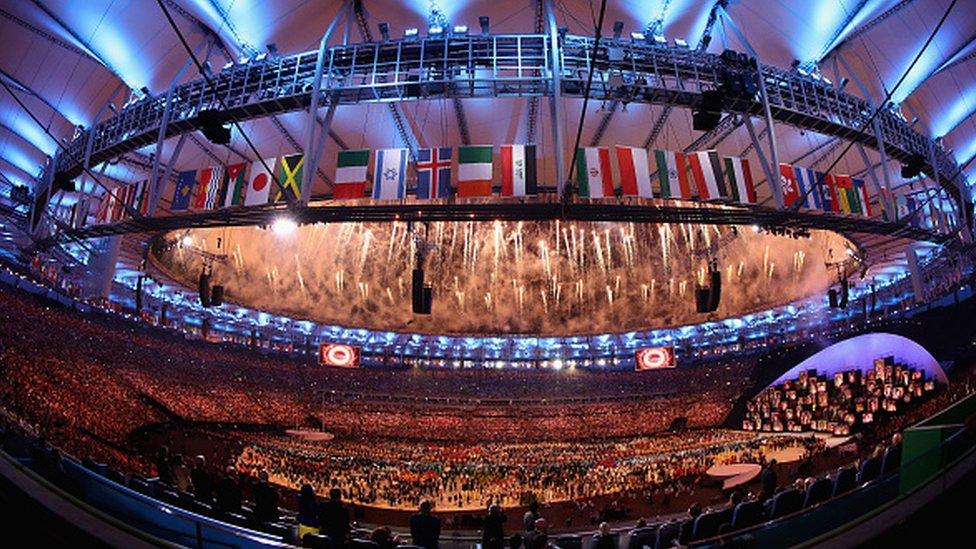
Brand new sports stadiums or tackling the problems of chronic pollution and underinvestment in social projects? It depends, I suppose, where your priorities lie.
I really hope the Games, and the Paralympics, which follow in September, are a huge success - Rio has been neglected for decades and for many reasons it deserves to be recognised as one of the World's great cities.
But you get the feeling that much of that euphoria, goodwill and hope we saw back in 2009 has evaporated.
Tickets sales for many sporting events, especially among local residents of the city as opposed to international visitors, have not been particularly encouraging. Tickets are actually quite expensive for Cariocas worried about their jobs and salaries and enthusiasm for the Games, particularly outside Rio, has been lukewarm.
The Games, I'm sure will avoid a major crisis and some of Rio's "issues" wont even be noticed by visitors - 85,000 soldiers on the streets, for example, will help the city's terrible crime statistics.
This is a city where people know how to party and where they love their sport. For the next fortnight it will certainly be the coolest, most active place on the planet.
But when the tourists, athletes and visiting journalists have gone, most of Rio's deep-rooted problems will remain.
Wyre Davies is a Welsh journalist and South America correspondent for BBC News
- Attribution
- Published6 August 2016
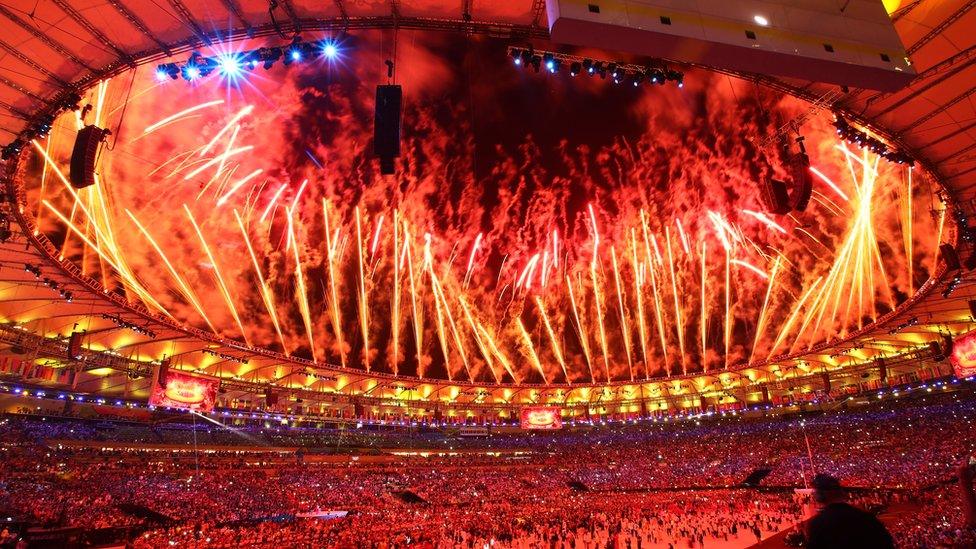
- Published5 August 2016
